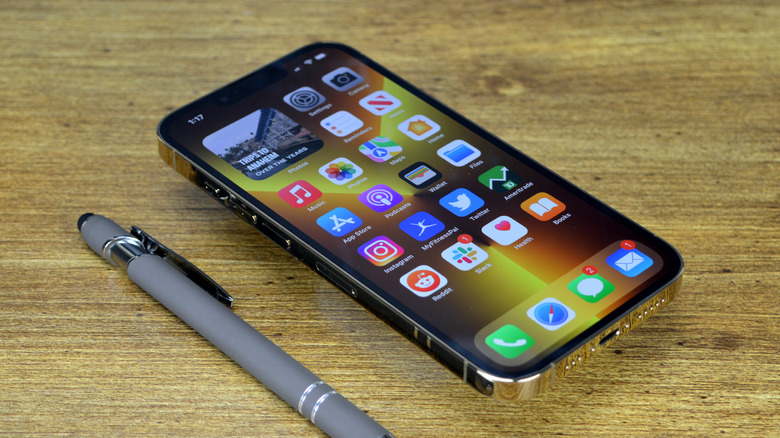Apple Just Slammed Android While Defending Its iPhone App Store Policy
Apple is under the scrutiny of policymakers worldwide for the way it handles and enforces App Store regulations. Some developers have been asking for lower App Store fees, the ability to process in-app payments themselves, and support for third-party stores or sideloading apps. Apple has been defending its iPhone App Store practices around the world, agreeing to make some concessions along the way. However, Apple hasn't yet made big changes, and the company continues to defend its ecosystem. The newest defense comes in the form of a security report.
Apple explains why sideloading apps on iPhone would be so dangerous for users. In the process, Apple compares the iPhone to Android, which supports sideloading. Android has up to 47 times more malware than iPhone, according to recent research, and Apple fears the same could happen to iOS.
The App Store antitrust cases
In recent months, Apple had to deal with several antitrust matters. The company settled a case with small US developers just as a new law from Korea came in. Lawmakers decided that Apple and Google must allow third-party payments in apps. Separately, Apple settled a case with Japan's Fair Trade Commission (JFTC), agreeing to allow apps like Netflix and Spotify to link to their sites, where users could buy and manage their subscriptions.
But the antitrust case you might be familiar with the most is the Epic Games lawsuit over Fortnite. Epic forced a crisis last year so that it could sue Apple. The developer wanted to offer buyers its own payments system in Fortnite. And Epic got a small win on the matter, losing on every other count in the case.
The gist of all of it is that Apple is encountering similar pushback in various jurisdictions over how the App Store works.
People opposing Apple's closed App Store ecosystem often argue in favor of lower fees, third-party payments support, third-party app stores, and sideloading. The latter refers to the ability of users to install applications from any source, not just the App Store.
Google is also facing similar antitrust issues, but there is one difference on Android. You can sideload apps on Android.
Sideloading apps on iPhone and Android
Apple has vigorously defended against such demands from developers, focusing on a few key aspects. Security and privacy are always part of Apple's argumentation about why it chose to maintain a firm grip on the App Store. The rules that developers must abide by are in place to safeguard the privacy and security of end-users.
Apple's new paper, "Building a Trusted Ecosystem for Millions of Apps — A threat analysis of sideloading," details Apple's stance on sideloading apps on iPhone.
It's not just private entities going after Apple, but governments as well. The paper might help Apple explain to regulators why sideloading apps is terrible for iPhone users. Proposed legislation in the US and Europe aims to force Apple to allow sideloading.
The 28-page document that Apple cites security information from various recognized bodies, including the US Department of Homeland Security and European Agency for Cybersecurity. But it also mentions reports from Nokia, which showed in 2019 and 2020 that malware on Android was between 15 and 47 times greater over the last four years than on iPhone.
Android allows users to download apps from anywhere. Interestingly, when Epic first launched Fortnite on Android, it skirted the Play Store, inviting users to sideload the game.
Apple highlights that support for sideloading apps would ultimately hurt even those users who refuse to install apps from untrusted places. Apple says users might have no choice in some cases but to sideload apps if companies choose not to publish them via the App Store.
Also, malicious actors might try to convince unsuspecting users to install malware-laden apps via sideloading. That's a scenario that can still impact Android users. Apple doesn't mention Fortnite in its report. But that's exactly what happened with Fortnite on Android a few years ago.
